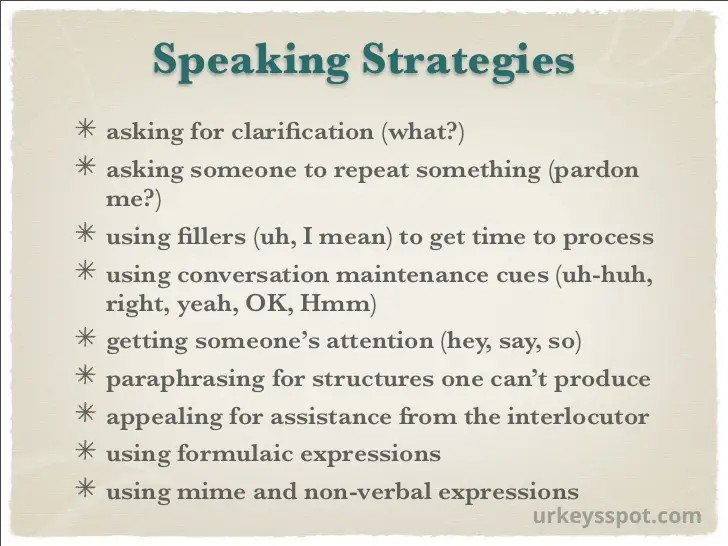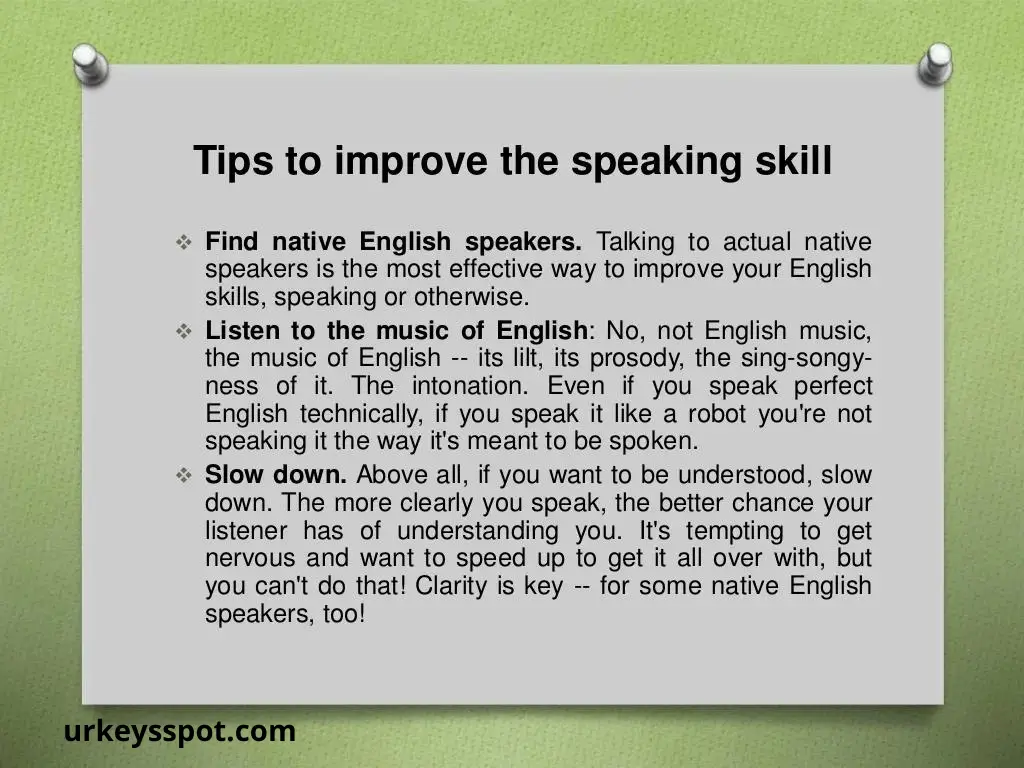Ever wondered why some folks chat in English and you instantly think, “Wow, they must have been speaking this since they were in diapers!”? Well, buckle up, because we’re diving into the nifty realm of speaking English not just well, but like a bona fide native speaker. We’re not just talking about perfect grammar or a fancy vocabulary that would make Shakespeare nod in approval. No, siree! We’re on about the nitty-gritty, the subtle nuances that make your English sound as smooth as butter. Ready to jazz up your English-speaking skills? Let’s roll!
Fundamental English Speaking Strategies

Understand and Use Contractions
Here’s the scoop: contractions are your new best pals. They’re like the secret handshake of the English-speaking world. Instead of saying “I am,” why not slide into “I’m”? Sounds more like you’re in the groove, right? Native speakers use contractions all the time because they’re snappy, they’re breezy, and hey, they save time. So, if you want your English to sound as cool as the other side of the pillow, start squeezing those words together!
Mastering Pronunciation and Intonation
Next up, let’s chat about the melody of English – yeah, you heard that right, melody! English isn’t just words strung together; it’s got rhythm, it’s got music. Notice how native speakers stress some words and glide over others? That’s the tune you want to catch. And don’t get me started on pronunciation. It’s the cherry on top. Nailing the pronunciation is like hitting the bullseye in darts – it feels fantastic and sounds even better.
Learning and Using Phrases
Now, here’s a secret weapon: phrases. Think of them as your go-to toolkit. Instead of fumbling around with individual words, grab a phrase. It’s like having a Swiss Army knife in your language arsenal. Phrases make your English sound more fluid, more natural, and let’s face it – they’re a timesaver.
Embracing Slang and Idioms
Last but not least, let’s spice things up with some slang and idioms. These are the sprinkles on your English sundae. They add flavor, color, and a dash of personality. When you toss in an idiom or a bit of slang into the conversation, you’re not just speaking English; you’re telling the world, “I’ve got this language down pat.”
So there you have it, folks – your roadmap to sounding like you’ve been chatting in English since you could walk. Stay tuned, because we’ve got more top-notch tips coming your way in the next parts. Keep practicing, and remember, every step forward is a step closer to sounding like a native English speaker!
Advanced Speaking Techniques
Mimicking Native Speakers
Ever heard the saying, “Monkey see, monkey do”? Well, when it comes to sounding native in English, it’s “Human hear, human do.” Find a native speaker who’s the bee’s knees at English and mimic them. It’s like being in a play; you’re adopting a character. Watch their mouth move, listen to the ups and downs of their tone, and pretty soon, you’ll be mirroring them like you’re their shadow. It’s not just about copying; it’s about understanding the rhythm and flow of authentic English speech.
Understanding Cultural Nuances
Speaking English like a native isn’t just about the words; it’s about the music behind them. It’s the cultural undertones, the unwritten rules of conversation. Ever noticed how Brits love their understatements, while Americans can be more direct? That’s the cultural flavor you want to sprinkle on your English. It’s like cooking; the right spices can transform a dish. Understanding these nuances is like having a secret key that unlocks a whole new level of language.
Utilizing Technology and Media
In this digital age, there’s a treasure trove of resources at your fingertips. Want to sound British? Watch a BBC series on BBC Learning English. Aiming for American English? Tune into a Hollywood flick. And with apps galore, you can practice anytime, anywhere. It’s like having a language lab in your pocket. Dive into podcasts, audiobooks, or even YouTube channels. Immersing yourself in English media isn’t just educational; it’s like being on a language adventure.
Engaging in Regular Practice
Here’s the deal: practice doesn’t just make perfect; it makes permanent. Chat up a storm in English at every chance. Join language exchanges, speak with tutors, or just talk to yourself. Every conversation is a step forward. Think of it like going to the gym; the more you work out, the stronger you get. Regular practice ensures your English skills stay sharp, vibrant, and ready to shine.
By embracing these advanced techniques, you’re not just learning English; you’re living it. It’s about weaving the language into the fabric of your daily life, making it as natural as breathing. So keep at it, and soon, you’ll be chatting away like English is your first language! Stay tuned for more insights in the upcoming parts, where we’ll dive even deeper into the art of speaking English like a native.
Practical Applications and Exercises

Interactive Learning Methods
Let’s get hands-on with some interactive learning methods! Imagine English as a sport. You wouldn’t just read about it; you’d play it. Dive into language games, engage in role-playing scenarios, or participate in English-speaking clubs. It’s like turning your language learning journey into a game. The more you play, the better you get. Think of these activities as your language gym where you flex your English muscles.
Setting and Achieving Goals
Goal setting is your roadmap to success. It’s like plotting your journey in a treasure hunt. Start with small, achievable targets. Maybe today, you learn five new phrases; tomorrow, you strike up a conversation at a coffee shop. Celebrate each victory, no matter how small. It’s about progress, not perfection. Use apps to track your progress, set reminders, or even challenge friends to a friendly English duel. Remember, every step forward is a step closer to fluency.
Incorporating these practical applications and exercises into your routine isn’t just about improving your English; it’s about transforming your learning experience into an adventure. By actively engaging with the language, you’ll find yourself speaking English more naturally and confidently. So, embrace these strategies, set your goals, and watch your English skills soar to new heights! Stay tuned for the next part, where we’ll explore more ways to enhance your English-speaking journey.
FAQs
In this part, we delve into the FAQs, where we tackle the common curiosities and conundrums learners face on their quest to speak English like a native. So, let’s get cracking and unravel some of these mysteries!
Q1: How long does it take to speak English fluently? Well, it’s not a one-size-fits-all answer. It’s like asking how long it takes to learn to play the piano or master chess. It depends on your dedication, practice, and exposure. Consistency is key. The more you immerse yourself in the language, the quicker you’ll pick it up.
Q2: Can I learn to speak English fluently just by watching movies and TV shows? Movies and TV shows are fantastic tools, kind of like having an English-speaking friend in the room. They expose you to natural dialogues, slang, and cultural nuances. But remember, it’s also crucial to actively practice speaking. Combine watching with speaking, and you’re on your way to success. Websites like FluentU provide a great platform to learn English through real-world videos, making this process even more engaging and effective.
Q3: Is it possible to get rid of my accent while speaking English? Here’s the thing: accents are a part of who we are. They tell a story of our background. While it’s possible to reduce a strong accent, the goal should be clarity, not erasure. Embrace your accent! What’s important is being understood and understanding others.
Q4: How can I expand my vocabulary to sound more like a native speaker?Immerse yourself in English in all its glorious forms. Read books, listen to podcasts, scribble in a journal, chat with friends, or explore new words daily. Think of vocabulary as your toolbox; the more tools you have, the better you can express yourself. Websites like Preply offer opportunities to expand your vocabulary by connecting with tutors and engaging in conversational practice.
By addressing these FAQs, we aim to smooth out the bumps on your road to fluency. Remember, every learner’s journey is unique, so embrace yours with enthusiasm and curiosity. Stay tuned for more insightful sections as we continue to explore the fascinating world of English language mastery!
Conclusion
Embarking on the journey to speak English like a native is a thrilling adventure filled with ups and downs, much like a rollercoaster ride. It’s not just about mastering grammar or expanding your vocabulary; it’s about diving deep into the rhythms, nuances, and cultural undertones that give English its vibrant essence.
Remember, fluency is a journey, not a destination. It’s about embracing the process, celebrating small victories, and continually pushing the boundaries of your comfort zone. Like any grand adventure, it requires curiosity, resilience, and a dash of daring.
So, keep your spirits high and your goals clear. Utilize the strategies, tips, and insights shared throughout this guide, and tailor them to fit your unique path. Engage with the language in all its forms, immerse yourself in its culture, and don’t forget to enjoy the ride.
As you move forward, remember that language is a bridge, connecting people and cultures. By striving to speak English like a native, you’re not just enhancing your linguistic skills; you’re opening doors to new experiences, friendships, and perspectives.
In closing, let this guide be your compass as you navigate the vast and vibrant world of English. Keep exploring, keep questioning, and most importantly, keep speaking. Your journey to fluency is a testament to your dedication and passion, and every step forward is a step towards broader horizons.
Happy speaking!

